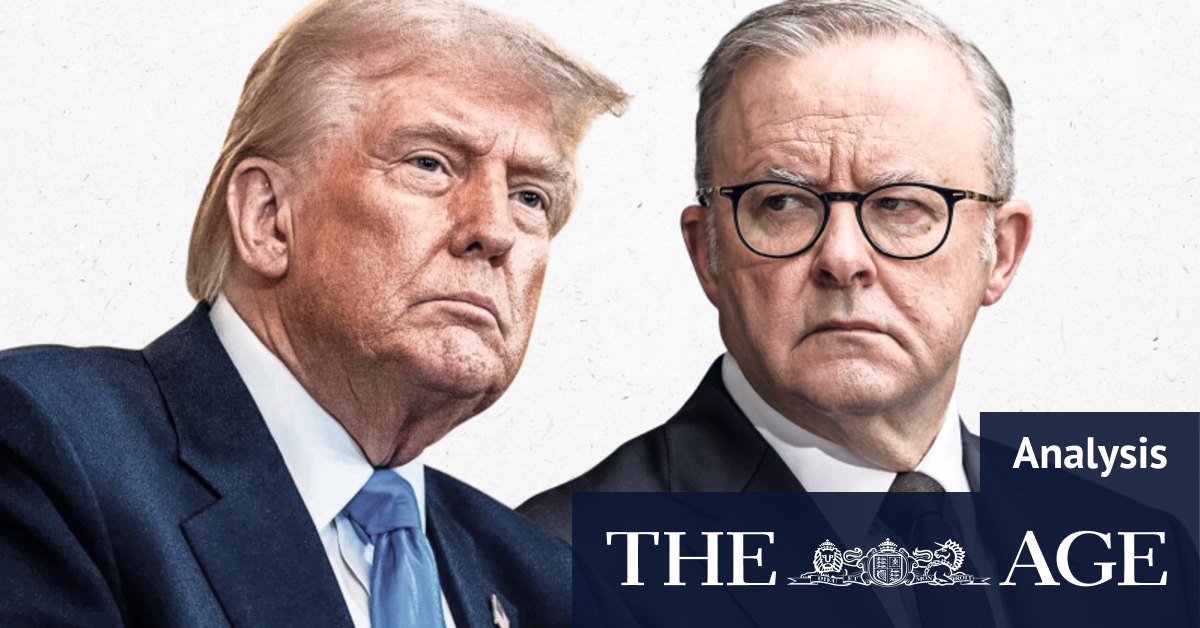Since US President Donald Trump released globally financial chaos with his “liberation day” duties, Prime Minister Anthony Albanese and Australian exporters have been able to comfort in a fact. Yes, the customs can be frustrating. Yes, they violate Australia’s free trade agreement with the United States. But no other country in the world has been able to do anything better.
“There is no doubt that there is no one who has a better deal,” Albanese said after Trump’s dramatic press conference in April in the White House Rose Garden.

Anthony Albanese has been left in the cold by Donald Trump.Credit: Marija Ercegovac
This boast could quickly evaporate after Trump has moved plans to raise the baseline’s customs rate for US imports from 10 percent to somewhere between 15 and 20 percent. As with everything in Trump’s volatile universe, the situation can change. Still, a president who a few months ago was accused of “always chicken” on customs embedded and leaned in his protectionist instincts. After a first market freak -out, Trump’s trade war has had a milder impact on the American economy than first feared, and encouraged him to double his “Tullman” person.
It is a worrying sign for Australia, which risks becoming security damage in Trump’s bid to squeeze more money from countries exporting goods to the United States. Although Australia is not the focus of Trump’s trade IRE, it has not received special benefits either. It is despite the countries’ alliance and the fact that Australia has a rare trade deficit with the United States.
Trump has an intuitive respect for great powers such as China, Russia and India, but some consideration for traditional American alliances and leaves medium forces like Australia in a tough position. The risk of Albanese is that he becomes a spectator to Trump’s trading network rather than a dealer who can affect them.
The gold standard for dealing with Trump seems to be British Prime Minister Keir Starmer. After a successful meeting with Trump in the White House in February, Starmer announced a “historical trade agreement” that would lock in a 10 percent customs rate for British exports to the United States and lower customs on British steel exports from 50 to 25 percent.
When it comes to Albanese and Trump, their relationship began strongly with a friendly phone call in February where Trump undertook to consider granting Australia an exception to his steel and aluminum duties. Later that day, Trump described Albanese as a “fine man”, another promising sign. Since then, there has been nothing to hug.
The exception of Mooted Metal’s events never, and the couple did not have another phone call until after Albanese’s election victory in May. Albanese has not been invited to visit the White House and a planned June meeting on the Sidel line for the G7 summit in Canada was canceled when Trump returned early to Washington.
